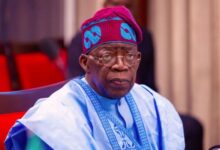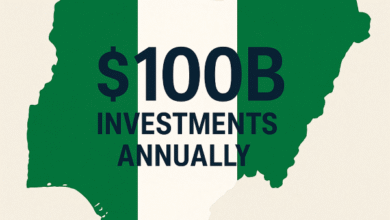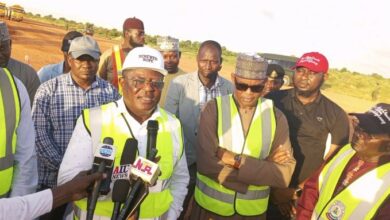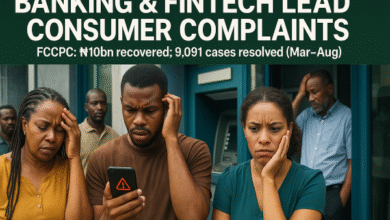Africa Investment Forum: Projects worth $140 million on the table to boost vaccines and healthcare in West and East Africa
 Members of the Africa Investment Forum team showcased two projects during a virtual investor roundtable as the continent looks to boost its healthcare sector and attract much-needed investment in the wake of the Covid-19 pandemic.
Members of the Africa Investment Forum team showcased two projects during a virtual investor roundtable as the continent looks to boost its healthcare sector and attract much-needed investment in the wake of the Covid-19 pandemic.
The projects, jointly worth around $140 million and located in East and West Africa, were previewed for potential investors.
The roundtable, held 21 October, is part of a series of events organized by the Africa Investment Forum and hosted by the Atlantic Council to drum up interest in the Forum’s upcoming Market Days, where a range of investment opportunities will be unveiled. The invited participants represented the pharmaceutical and healthcare sectors.
The first opportunity, with a project cost of $96 million, is for the development of a 250-bed specialist hospital offering world-class healthcare services in a West African country. Feasibility studies have been undertaken and the land has been secured. The second, entails the construction of a $45 million WHO-prequalified vaccine production plant in East Africa that will be capable of routine production of three vaccines, including for Covid-19.
READ ALSO:https://brandeconomy.com.ng/cbns-enaira-to-grow-nigerias-gdp-by-29-billion-in-10-years-buhari/
After the presentations, a panel of investors provided their insight on investing in Africa’s healthcare sector. The panelists were Rhulani Nhlaniki, sub-Saharan Africa Cluster Lead at Pfizer; Jean-Philippe Syed, Principal with private equity firm Development Partners International; Afsane Jetha, Managing Partner & CEO at private equity firm Alta Semper Capital; Stavros Nicolaou, Senior Executive – Strategic Trade at Aspen Pharmacare; and Dr. Dumani Kula, Chief Operating Officer for Africa with Evercare Group, a healthcare company. Aubrey Hruby, a Senior Fellow with the Atlantic Council’s Africa Center, moderated.
Syed said the African hospital sector, and in particular health tourism, had suffered as a result of pandemic-related travel restrictions.
Nicolaou said Africa’s disease burden—the highest of any continent—made preventive care, including vaccines, all the more important for Africans. The need for pharmaceuticals will increase the requirements for partnerships that can overcome constraints such as research & development.
Other challenges mentioned by the participants include overcoming cold chain and last-mile-delivery issues, and ways to scale up pilot technologies, such as the use of drones to facilitate vaccine delivery.
Health is one of five priority investment sectors under the Africa Investment Forum’s Unified Response to Covid-19 (https://bit.ly/3nnig7l) pillars. The others are agribusiness, energy and climate change, ICT/Telecoms, and industrialization and trade.
At a panel discussion organized by the University of Edinburgh last week, Africa Investment Forum Senior Director Chinelo Anohu referenced the East Africa vaccine plant project in the context of Africa’s current limited access to Covid-19 vaccines. Through trade and investment, particularly in its pharmaceutical sector, the continent can avoid vaccine inequity, Anohu said.
“What we’re looking to provide with the Africa Investment Forum is a co-investment platform where you mobilize domestic investors, mobilize project sponsors for the continent, and then mobilize international investors, those who are looking to make an investment and get a profit,” Anohu said.
The Africa Investment Forum aims to channel investment into Africa. Its 2021 Market Days, to be held on 1-3 December, will showcase transformative investment opportunities from across the African continent, many with the potential to drive Africa’s recovery from the Covid-19 pandemic.
The Africa Investment Forum was launched in 2018 by eight founding partners: The African Development Bank, Africa 50; the Africa Finance Corporation; the African Export-Import Bank; the Development Bank of Southern Africa; the Trade and Development Bank; the European Investment Bank; and the Islamic Development Bank.











